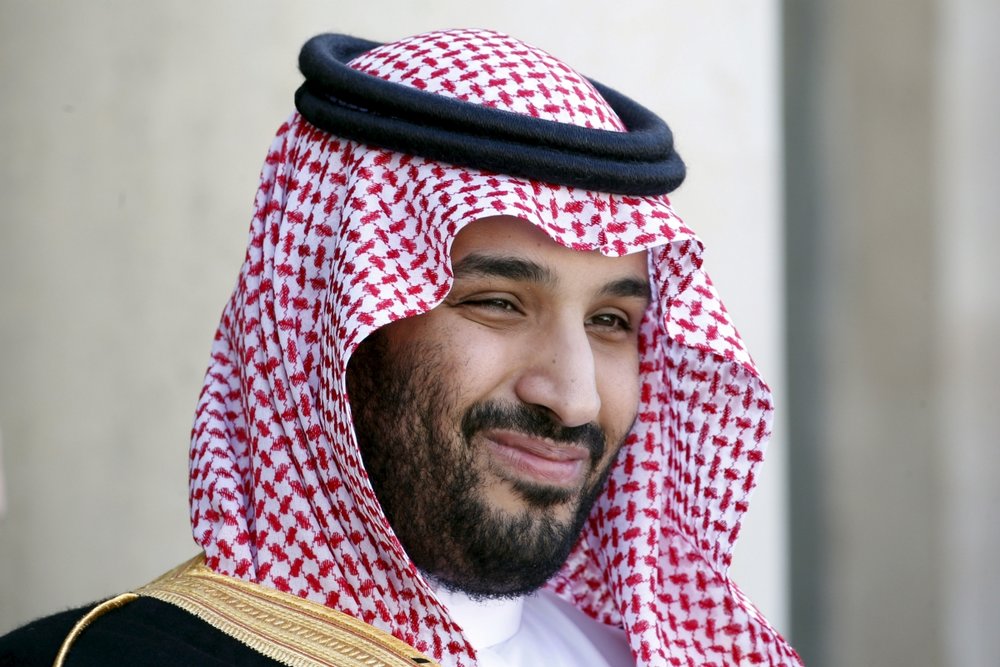Carl Schmitt’s blueprint for Saudi MbS

In an opinion piece for the Washington Post on November 9, Fareed Zakaria wrote “Mohammed bin Salman is now applying to Saudi Arabia what has become the new standard operating procedure for strongmen around the world”.
In fact, the formula for political success that the young royal is following parallels what Carl Schmitt, a German jurist and political philosopher expressed in his books.
Schmitt (1888-1985) is seen as a major figure in legal and political theory whose works have inspired important scholars like Jacques Derrida and Jurgen Habermas. He joined the Nazi Party in 1933 and supported the regime’s radical policies from 1933-36. His theories were used to shore up the legal foundations of the Nazi state. Schmitt’s writings were not especially well-known to the general public but after years in the wilderness, his works are attracting attention and in Iran several of them have been translated into Farsi.
Schmitt is most well-known for the concept of the “state of exception” similar to a state of emergency, in his legal theory under whose aegis the sovereign power can choose to act outside the structure of law. He believes the “sovereign is the one who decides on the exception,” and take whatever action is necessary outside legal restraints to its power that would normally apply.
Schmitt argues the exception itself can be a mere fabrication of the sovereign, which acquires dubious legitimacy on the basis raw violence. In this case, it is not the exception, the state of emergency, which calls forth the sovereign decision, but the other way around, the sovereign decision creates the exception, or state of emergency.
Against this backdrop, Schmitt’s conceptualization of politics can provide us with a completely new perspective on the sphere of politics in today’s Saudi Arabia.
A reformer or despot?
On November 4, Saudi authorities began a widespread crackdown aimed, on the one hand, against former economic policymakers and business leaders and, on the other, against the chiefs of the Saudi National Guard and Saudi Royal Navy. In addition, sources confirmed that several of the royals were tortured to an extent that they were admitted to the hospital’s intensive care unit.
According to Saudi authorities they were detained in a new anti-corruption probe headed by the kingdom’s powerful Crown Prince Mohammed bin Salman, who was also named to oversee a new committee with the same name. This was the biggest political purge in the history of Saudi Arabia and its ruling dynasty. As part of a widening crackdown, authorities detained about two dozen military officials and several businessmen later this week.
Before Salman bin Abdulaziz assumed the throne of Saudi Arabia in January 2015, few people outside the kingdom had heard of Prince Mohammed. Nevertheless, in less than two years, the brash, 32-year-old Prince has emerged as the most powerful royal. He managed to bring all centers of power under his control in the country by adopting a series of exceptional measures and creating a state of emergency in the country.
An analysis of bin Salman’s policies and actions shows that he is seeking to establish a totalitarian regime by employing oppressive and repressive tactics. Perhaps the crown prince is a reformer but the formula for political success that he’s following is similar to what’s been applied by other dictators in modern history using the same ingredients to tighten their grip on power.
For years, respect for seniority and power-sharing among branches of royal family were a time-honored tradition. However, the rise of Prince Mohammed shattered that tradition. Never before in Saudi history has so much power been wielded by a crown prince and that centralization of authority has angered many of his relatives.
That’s why by extra-judicial and ad-hoc measures, bin Salman targeted rival centers of influence whose wealth and power posed a threat to his rule. The latest reports that the regime is demanding up to 70% of rich detainees’ wealth in return for their freedom, further reinforce this view. MbS is clearly seeking to consolidate his position as he is expected to take his father's place as king sometime soon.
Schmitt’s second big idea is that politics is fundamentally about the distinction between friends and enemies. This concept of politics is not determined by economics and ethical categories. Rather, the state needs to create enemies to constitute itself and to ensure its own survival.
Following Schmitt’s blueprint, bin Salman sought to expand militarism by interfering in other countries’ affairs and create tensions in Saudi Arabia’s periphery. The war in Yemen that has turned into a disaster, the diplomatic crisis with Qatar, and latest episode of forcing Lebanese Prime Minister Saad Hariri to resign as well as repeated accusations against Iran, are part of a scenario to divert the public’s attention from what’s going on domestically and help the ambitious prince consolidate his position.
The prince’s playground
Mohammed bin Salaman has introduced ambitious plans for the development of Saudi Arabia. Nevertheless, it is hard to predict how the kingdom is going to emerge out of backstabbing and purges, conducted at the highest level. In the absence of credible organized opposition and independent judiciary, one thing is clear: There is no one who can undermine prince’s control over the country. With unconfirmed reports of an assassination attempt by members of Saudi National Guard this week, one can expect more violence in the kingdom. Mohammed bin Salman has truly made the country and the region his playground.
Leave a Comment